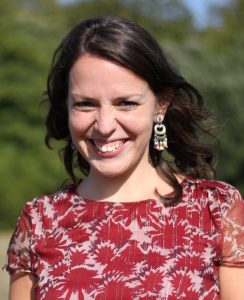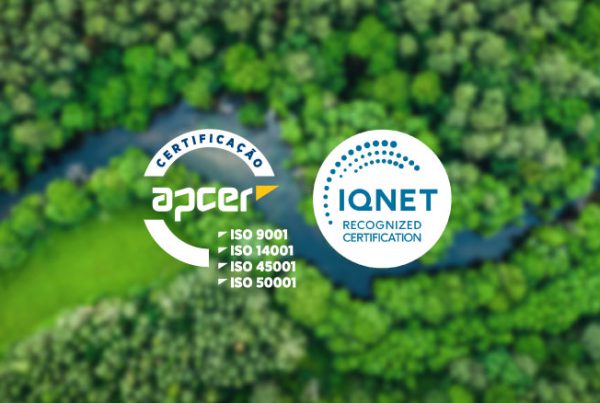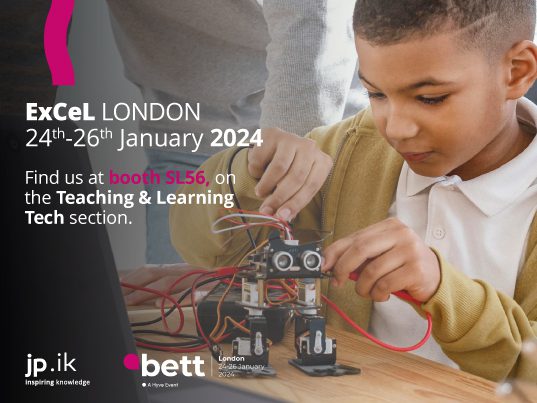The opportunity to participate in jp.ik Projects was immediately received with great expectation and the certainty – which came true – that these would be experiences of enormous growth, as well as personal and professional learning. From the two times I visited Mozambique, the projects aimed to raise awareness and training of students and teachers regarding the use of technological resources in an education context, aiming to promote, on one hand, the empowerment of teachers in designing new teaching experiences through technological resources and, on the other hand, assisting students in developing of digital skills and understanding how transformative and very distinctive they can be compared to what we experience with the more traditional teaching modalities.
The journey began with the planning of the training moments and activities, anticipating the relevance of truly knowing and understanding social contexts, their needs, their history of inequalities and opportunities, and also our own ability to generate questioning, learning and commitment with all the parties engaged, providing an inclusive, current and innovative response.
Mozambique was, nevertheless, an unknown context, in which the realities were in sharp contrast and the desire for experimentation and realization on the part of those who received us was very visible. Therefore, even at an early stage, it was vital to enable an environment of trust and sharing by adapting and readjusting what appeared to be appropriate for their academic, professional and social contexts.
Often experience has shown me that the crucial factors for the effectiveness of work performed in contexts so different from those we are used to and in which we foresee some challenges, which are the validation and enhancement of the competences, knowledge and pedagogical methodologies already implemented (notably by teachers) and by together reshaping activities aligned with learning content and goals, as these processes increase the identification and levels of motivation of all involved.
It worked in a similar way with students, as using technological resources they could glimpse those that may be tools for improving their teaching and learning conditions and, consequently, the implications for their lives, at individual, social and professional level.
The integration of technological resources in an educational context also assumes as added value the personalization of teacher-student engagement, the adaptations of the teaching-learning pathways for each student and the facilitation of the evaluation processes, enabling an active participation, producer of experiences and builder of their own knowledge.
Therefore, their use should be adjusted to the requirements of innovation and technological development, creating challenges of adaptation to the formative and context-specific needs. It is this path that assists making technology tools more credible, seeing them as facilitators of a process rather than an end in itself.
This transformation in educational contexts, however, should always be accompanied by a concern to involve the education system and community in its updating and reorganization to new conception of Education and new practices that progressively respond to the new challenges encountered, not only at the educational level. academic development, but also at the students’ personal and vocational level.
As a psychologist, I have been working with young people and I am interested about their own pathways; vocational and professional. This whole process is done through a more relational, humanized and contextual approach to educational practices, enhancing a more harmonious and articulated development with interests, competences and potentialities of each one; focusing on the closer relational proximity to each student and the infusion of the exploration of transversal skills (creativity, teamwork, problem solving, etc.) and to the job market into the curriculum content of students, building a meaningful vocational project and let each one realize their role in this process.
Regardless of the social, economic and labor differences that may exist between distinct countries and continents, it seems safe to say that digital and technological competences do play a key role in the labor market and in the jobs of the future. Knowing how to integrate this reality in our daily routines and for everyone across the board, thus becomes an important key in opening doors to a fairer, more balanced and more opportunity-rich society. This has become more real to me, especially watching the little ones, the dreams that accompany them and the sparkle in their eyes when they realize that, with the right tools, they can do and achieve things they never thought they could.
I ended up understanding, then, that in these training contexts I was in, Education is also understood as an indispensable tool for the exploration, experimentation and approximation of realities that would otherwise be very difficult to reach and reconcile for the development of citizens and professionals who in the future want to improve their lives, those around them and, therefore, their country and ultimely the world.
Feeling this huge desire to evolve and transform in the people I had the opportunity to be with, and seeing the full potential for this to happen, was one of the richest and most remarkable professional experiences I have had the privilege of living to this day.

Mafalda Vasconcelos is a Psychologist. She holds a Master in Clinical and Health Psychology from the University of Porto and a Postgraduate in Evaluation and Intervention in Child and Adolescent Psychopathology.
Her professional career has focused on working with children, youth and adults in areas as diverse as Clinic; Vocational Guidance and Career Development at the Faculty of Psychology and Educational Sciences; Consultancy in the area of Education, Training in Psychology-related topics and, more recently, in the management of the SAGAZ project, a Preventive Mentoring and Volunteering Program at ALENTO.



